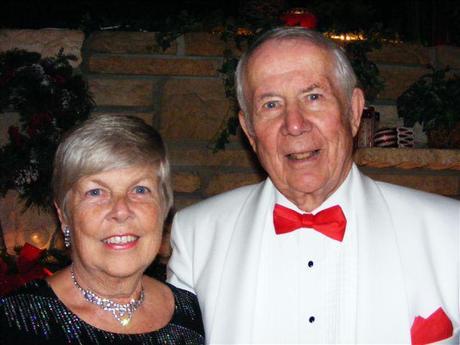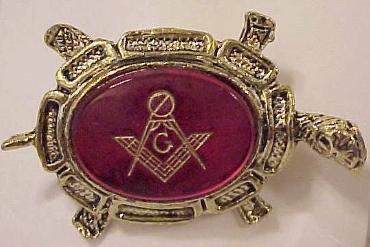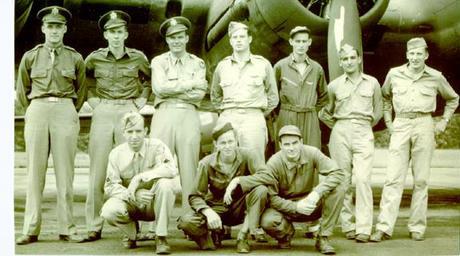Interview with Rudy Froeschle
(Thursday, October 7, 2010 – 9 am est)

Rudy Froeschle (Ft. Myers, Fla.) was a Bomber pilot who joined the 384th Bomb Group, 544th Fighter Squadron in 1943. During his 2nd mission in Stuttgart, Germany his plane was gunned down and he was held captive for over two years. While in captivity, he taught German grammar and literature to college students. A snapshot of Rudy was profiled in a recent documentary on the History Channel called “Great Escapes of World War II”. The documentary highlighted POW’s battles’ with severe depression while in captivity. Rudy is shown with his tin can cooking stove behind a heavy barbed wire fence.
WWII History: As I understand it you were in a POW camp from September 6, 1943 till the end of
the war. Could you tell me some of the experiences of life in a POW camp.
Rudy: On my second mission our plane, a B-17 was shot down. This was on September
6, 1943 while over Stuttgart, Germany. I jumped and parachuted toward the ground,
but I struck a high-tension line and the chute collapsed, so I hit the ground pretty hard
and sustained a number of injuries. I guess I loss consciousness, because the next thing
I knew there were some German home guards standing over me. Since I spoke and
understood German, I heard them trying to decide if I was a German or not. They first
thought I was an English person, but I told them in German that I was not, but was an
American. So I was taken prisoner. After being interrogated at several places I was taken
to Stalag Luft III by train.
WWII History: What was life like in Stalag Luft III?
Rudy: It was crowded, filthy and there were no facilities. The bunks were triple-deckers
in groups of 12 to a room. We had to stand in line to receive what little food we got
which usually came from Red Cross parcels sent to the camp. This food was cold
when we received it, so we made little cook stoves from tin cans to cook the food. I
remember one POW bet he could eat a whole week’s ration in one day. Several POW’s
took up the bet. One of them bet $500 and this POW wrote out an IOU on a scrap of
paper for $500. He started eating his week’s work of rations, but got sick before he
could finish (not being used to so much food), so he lost the bets. Years later, after the
war was over, I met the POW that made the bet and he had taken the scrap of paper
to the bank and they contacted the other POW and the bank cashed the IOU for him!
WWII History: How much weight did you lose during your stay at this camp?
Rudy: I went into the Army weighing 168 pounds and came out of the POW camp
weighing 110 pounds.
WWII History: Did you watch the movie “The Great Escape” and if so, can you give
me a comparison between that movie and your experiences in a POW camp?
Rudy: Yes I have seen “The Great Escape” movie and I would have to say that only
about 50% of it was true to the experiences that I had in camp. I didn’t particularly like
Steve McQueen in the movie. William Holden who played in the movie “Stalag 17”
would have been better than Steve McQueen. I did think that “Stalag 17” was more
realistic that “The Great Escape”.
WWII History: Where were you on V-E Day and what were your experiences on that day?
Rudy: Prior to V-E Day I was in Stalag Luft VII-A. I had been there for three months
after being at Stalag Luft III for 16 months. On April 29, 1945 the 14th Armored Division
entered the camp by rolling their tanks over the barbed wire and liberated us. Myself and
another guy just walked out of the camp and headed for the nearest town, Moosberg, in
southern Germany. We were dirty, had beards, was lice and flea infected. On the way we
picked up some pistols from some of the dead bodies lying along the roadside, just in case
they were needed. When we entered the town, the Nazi troops had fled. One of the
townspeople asked who we were and after finding out we were Americans, they asked us
how many of us there was. We told them there were 10,000 of us down the road. Then the
town surrendered to us. We looked for the best house in town and when we went in, we
found the wife of a Nazi was there. Her husband had fled when he heard the Americans
were coming. She was very nice to us. We wanted to take a shower and clean up, so she
showed us where the shower was and said that she would wash our clothes. In the
meantime she offered us some civilian clothes that her husband wore when not on duty.
We took the shower, put on the clothes and went around town looking for a barber shop.
We found one a short distance away and went in. The barber cut our hair and relieve us of
the lice and fleas and clean us up. We went back to the house to spend the night and by
then, the Nazi wife had washed and cleaned our clothes so we put them back on. Later in
the evening a Lieutenant drove up in a jeep and commandeered the house, but allowed us
to stay there too. A few minutes later another two jeeps came and out jumped General
Patton, two other Generals and a full bird Colonel. They had brought rations for the Nazi
lady to cook and after she finished cooking them, Rudy offered to be the first to eat a little
bit of everything to be for sure she had poisoned the food. General Patton sat at the head
of the table, with the other two Generals on each side of him. My buddy and I sat next to
the Colonel. After the meal the General Patton and the othr two Generals interrogated me
and my buddy. I was really astonished at Patton’s voice. I would have thought it would
have been a deep voice, but it was high pitched. After the interrogation, Patton ask me if I
was a Turtle which I said “No”. Patton said he was going to ask him three questions and
if I got one right, I could become a Turtle. I got all three questions wrong, so Patton said
he would give me one more chance and asked me another question (my wife is here and
won’t let me tell you the question as she considers it vulgar, so you will need to go to the
Google website and look up Turtle organization)…
Anyway, I got the last question right and he said you are now a Turtle and gave me a pin
and a certificate…

… and then Patton said to me “The next time if someone asks you if you are a Turtle, you
reply ‘You bet your sweet ass’”.
WWII History: Are there any lessons for today’s generation that you would like to pass on?
Rudy: Patriotism and Honor… and a strong feeling for the United States of America
Crew of B-17 L to R – Jim McMahon, Pilot; Rudy Froeschle, Co-Pilot; Les Shackelford, Navigator; Art Dinndorf, Bombardier; Sam Jessup, 2nd Engineer; Marcus Carr, 1st radioman; Jim Savage, Waist Gunner; Kneeling – L to R – Bob Stahlhut, 1st Engeneer; John Tripp, 2nd radioman; George Kemp, Tail Gunner

Thanks to Rudy for taking his time answering our questions. Rudy was part of the Fantasy of Flight’s October Living History Symposium‘s “Held Captive: Untold War Stories from Heroes of the Sky: World War II POWs Chronicle Their Tales of POW Survival to Triumph”. Our thanks as well to the Fantasy of Flight for orchestrating this interview. You can get more information about them at www.fantasyofflight.com.
